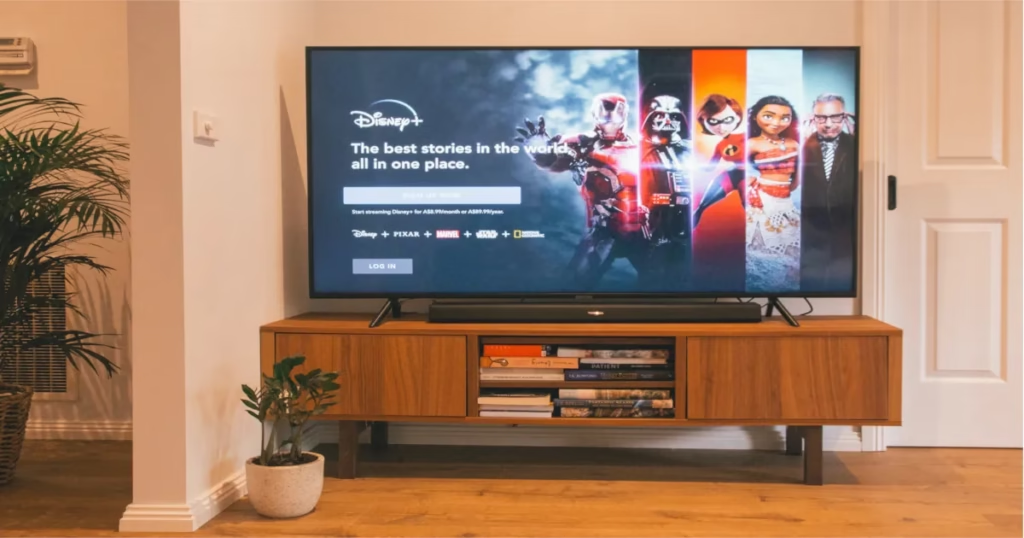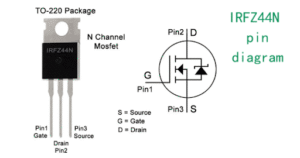Article Summary
Smart TVs, which offer more than simply TV shows, are quickly becoming a necessity in households all over the world. They provide a lot of services, including apps like Netflix and YouTube as well as internet access. But are they as good as they seem? This post will discuss the benefits and drawbacks of Internet access and assist you in determining whether a smart TV is the best option for you. To help you better understand what to expect, we will also compare well-known brands like Samsung Internet Access.
What is a Smart TV?
A smart TV has a direct internet connection and provides much more content than standard TV channels. Thanks to built-in apps and streaming services, you do not need an external device to watch movies, TV series, or videos from sites like Netflix, YouTube, and Amazon Prime. From the comfort of your couch, you may use internet access to browse the web, check your social media accounts, and even communicate with voice assistants.
Internet access combines the capabilities of a computer and a television, in contrast to typical TVs that only display material via cable or satellite. In addition, you may play games, download apps, get news, and utilize a number of productivity and entertainment features. Samsung, LG, and Sony are well-known Internet access manufacturers that provide distinctive features and a smooth user experience.
Samsung Smart TV: A Top Choice for Quality and Innovation
Samsung is a market leader in Internet access. Samsung provides a distinctive premium watching experience, renowned for its striking image quality, engrossing acoustics, and sleek, contemporary designs. Samsung Internet Access offers all of this and more, whether you are a movie enthusiast, a gamer, or you simply want a smooth connection to streaming apps. It should come as no surprise that Samsung frequently tops the list for consumers wishing to purchase an Internet access device given features like voice control, integrated apps, and compatibility with smart home appliances.
Key Features of Samsung Smart TVs:
- 4K Ultra HD: Enjoy ultra-clear picture quality with vivid colors and sharper details.
- Smart Hub: Find and enjoy your favorite entertainment with ease by navigating apps and settings.
- Voice Control (Bixby, Alexa, or Google Assistant): Control your TV hands-free with built-in voice assistants.
- Samsung One Remote: Simplify your viewing experience by controlling all connected devices with a single remote.
Samsung Internet Access is a well-liked choice for tech-savvy consumers who desire more than simply a TV because it combines design, performance, and utility.
Smart TV Advantages
Internet Access provides a wide range of benefits that go beyond traditional TV viewing. Let’s explore some of the key advantages:
1. Convenient Streaming
The days of streaming your favorite shows on separate devices like Roku or Chromecast are long gone. Well-known streaming services like Netflix, Amazon Prime, and Hulu are frequently pre-installed on smart TVs, making it simple and quick to begin watching with a few clicks. Everything you need for streaming is at your fingertips, whether it is a marathon of movies or your favorite series.
2. Internet Access at Your Fingertips
Access to the internet provides more than just amusement. You can use social media sites like Facebook and Twitter to remain in touch, check your emails, and explore the web. They are ideal for people who desire a multipurpose gadget that can be used for social interaction, entertainment, and information gathering from the comfort of their couch because of this extra flexibility.
3. Endless App Integration
A vast array of applications that cater to all interests are supported by Internet Access, ranging from games to educational resources. Apps for news, cuisine, fitness, and even virtual workouts are available for download. With almost infinite app options, your Internet access can be used for a wide range of purposes, including working out at home, staying up to date on current events, or simply unwinding with a game.
4. Superior Picture and Sound Quality
Top-tier features like 4K resolution and HDR (High Dynamic Range) are available on many contemporary Internet access devices, such as Samsung, guaranteeing a vivid, crystal-clear watching experience. With crisper details, more vibrant colors, and a more engaging experience, these cutting-edge technologies can significantly enhance the quality of what you are watching if you enjoy movies, video games, or sports. You also receive a fuller audio experience with better sound systems, which makes every game or entertainment more captivating.
Smart TV Disadvantages
Internet access has many benefits, but it also has disadvantages.
1. Privacy Concerns
Because Internet Access devices are linked to the internet, they are able to collect data about your viewing preferences. It has even been discovered that certain models can “listen” to conversations. This can be a problem for you if privacy is a concern.
2. Price
Compared to traditional methods, internet access can be more costly. Even if the cost is decreasing, premium Internet access can still be very expensive. Ordinary TVs may be a better option if you are on a tight budget.
3. Overwhelming Features
The abundance of functionality may be too much for certain users to handle. It can be challenging to know where to begin with so many apps, settings, and features, particularly if you are not tech-savvy.
4. Internet Dependency
Internet access performance may be impacted if your connection is sluggish or inconsistent. A bad connection can make streaming and browsing content annoying.
Is It Better to Buy a Smart TV or a Regular TV?
How you want to use it will ultimately determine whether you choose an Internet-connected TV or a standard TV.
A smart TV is unquestionably the way to go if you enjoy streaming movies, TV series, or music from websites like Netflix, YouTube, or Spotify. The integrated apps, internet access, and convenience of browsing will make your entertainment experience more convenient and pleasurable. Additionally, your TV may be made more functional with features like voice control and connectivity with smart home appliances.
However, if you only watch traditional TV channels through cable or satellite and have no interest in internet-based content, a regular TV could be a more cost-effective choice. You can still enjoy great picture and sound quality without the added complexity and cost of smart features.
In the end, it comes down to determining whether the additional features of an Internet access plan suit your demands and viewing preferences.
How to Choose the Right Smart TV for You
A few important factors must be taken into account when selecting the ideal Internet access. To help you choose the one that best meets your needs, here is a quick guide:
1. Screen Size
Consider the area in your bedroom or living room when choosing the screen size. While a smaller TV could be more suitable for smaller areas, a larger TV can be ideal for larger rooms. Additionally, think about how far away you plan to sit from the screen; in general, the larger the screen, the farther away you should sit for optimal viewing.
2. Brand
Well-known companies like Samsung, LG, and Sony provide a variety of Internet access options, each with special advantages. While some models may have smarter features or greater acoustics, others may excel in picture quality. You can make a better choice by researching each brand’s performance, dependability, and customer service reputation.
3. Features
Find the qualities that are most important to you:
- 4K Resolution: 4K is the best option if you want amazing picture clarity, especially on large screens.
- HDR (High Dynamic Range): HDR improves your viewing experience by providing improved contrast and colors, which makes it perfect for games and movies.
- Voice Assistants: If you value hands-free operation, consider a TV with built-in voice assistants like Alexa, Google Assistant, or Bixby.
- Smart Home Integration: Verify that the TV is compatible with all of your other smart devices, such as security cameras, lighting, and thermostats.
4. Price
Since smart TVs fluctuate widely in price, it is critical to establish a spending limit. More reasonably priced models can still deliver good performance for daily viewing, even though more expensive models could have the newest features and the finest picture quality. Be sure to strike a balance between the qualities you desire and your spending capacity.
Disadvantages of Smart TVs
1. Privacy Concerns
-
Data Collection
Smart TVs gather information about user preferences and viewing patterns, which can be utilized for targeted advertising and other objectives. Icon: An analytics sign or data points on a TV screen -
Listening Issues
Users may have serious privacy issues because certain Smart TVs contain microphones that can listen in on conversations. Icon: A microphone with a question mark next to a TV screen
2. Higher Price
- Cost Comparison
Generally speaking, smart TVs are more expensive than conventional, non-smart TVs, particularly ones with cutting-edge capabilities like 4K, HDR, or intelligent integrations.
Icon: A dollar sign with a TV next to it
3. Overwhelming Features
- Too Many Choices
The sheer volume of functionality can quickly overwhelm non-technical users due to the wide variety of apps, settings, and customizations available.
Icon: A remote control with multiple buttons or a complicated settings menu
4. Dependence on Internet
- Slow Connection
A smart TV needs an internet connection for streaming, browsing, and app capabilities. A slow or inconsistent internet connection might significantly impact performance.
Icon: Wi-Fi symbol with a warning sign or buffering symbol
Key Features Breakdown: Samsung Smart TV
1. Picture Quality
-
4K Ultra HD
Savor a clearer, crisper image with breathtaking detail and bright colors by taking advantage of four times the Full HD resolution.
Icon: A TV with “4K” label and vibrant colors displayed -
HDR (High Dynamic Range)
Enjoy a more immersive, cinematic viewing experience with improved contrast and brighter, more realistic colors.
Icon: A TV screen showing vivid, high-contrast colors
2. Smart Hub & Apps
-
Smart Hub
Discover your favorite entertainment with ease by navigating through a variety of apps and settings, including well-known streaming services like Netflix, YouTube, and Amazon Prime.
Icon: A remote control or TV screen with app icons -
Pre-Installed Apps
From your TV interface, you may access a number of pre-installed apps for social media, streaming, news, and other purposes.
Icon: A grid of app icons (Netflix, YouTube, Amazon Prime, etc.)
3. Voice Control
- Built-in Voice Assistants
Use voice assistants like Google Assistant, Alexa, or Bixby to operate your Samsung Smart TV hands-free. You can easily change the channels, adjust the volume, and search for shows.
Icon: A microphone symbol with a speech bubble
Conclusion
Smart TVs offer great features that might improve your viewing experience. With a single device, they offer convenient access to the internet, apps, and streaming. However, there are drawbacks as well, such as privacy difficulties and possible internet problems. In the end, your needs and preferences will determine whether Internet access is the best option. High-quality models are available from brands like Samsung, but before making a purchase, it is crucial to consider the advantages and disadvantages.
Frequently Asked Questions (FAQs)
What are the disadvantages of smart TVs?
Privacy issues, increased costs, overpowering features, and reliance on a steady internet connection are a few drawbacks.
What are the advantages of a smart television?
Smart TVs offer easy access to streaming services, apps, internet browsing, and enhanced picture quality.
Is it better to buy a smart TV or a regular TV?
It depends on your needs. If you prefer streaming, apps, and internet access, a smart TV is a better choice. Otherwise, a regular TV may suit your needs.
Do all Samsung Smart TVs have 4K resolution?
Although not all of the more recent Samsung Internet Access devices have 4K, it’s a good idea to verify the model’s specifications before deciding on one.
Can I use a smart TV without an internet connection?
Without a connection, you cannot utilize streaming apps or browse the internet, but you can still view traditional TV stations.
Are smart TVs compatible with voice assistants?
Yes, voice assistants like Alexa, Google Assistant, and Bixby work with the majority of smart TVs, including Samsung models.









